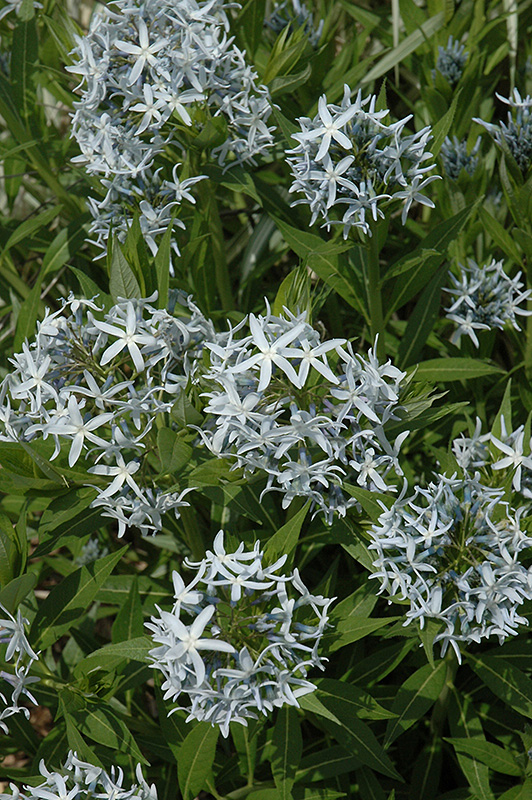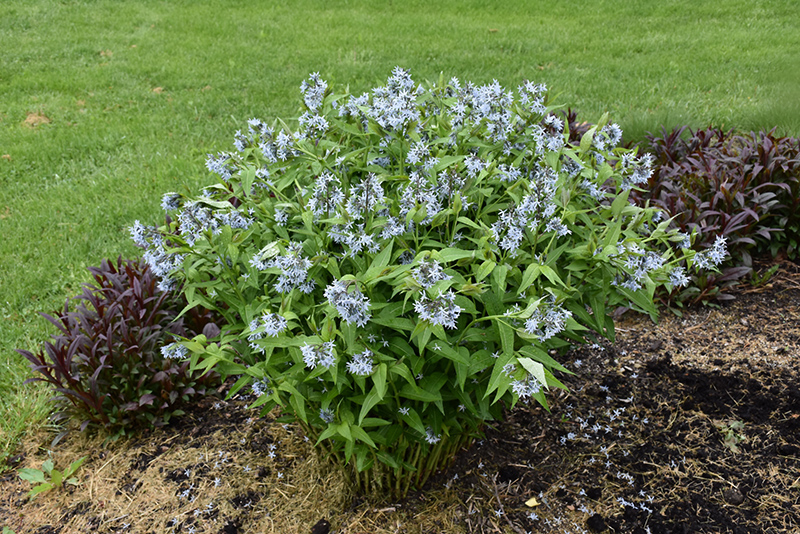Plant Finder
Height: 24 inches
Spread: 3 feet
Sunlight:
![]()
![]()
Hardiness Zone: 3
Description:
A lovely mounded selection that looks beautiful in garden beds, borders or fresh cut bouquets; featuring olive green, pointy foliage and clusters of powder blue star flowers during the late spring; stunning fall color when foliage shifts to golden yellow
Ornamental Features
Blue Star Flower has clusters of powder blue star-shaped flowers at the ends of the stems from late spring to early summer, which are interesting on close inspection. The flowers are excellent for cutting. Its pointy leaves are olive green in color. As an added bonus, the foliage turns a gorgeous yellow in the fall.
Landscape Attributes
Blue Star Flower is an herbaceous perennial with a mounded form. Its medium texture blends into the garden, but can always be balanced by a couple of finer or coarser plants for an effective composition.
This is a relatively low maintenance plant, and may require the occasional pruning to look its best. Deer don't particularly care for this plant and will usually leave it alone in favor of tastier treats. It has no significant negative characteristics.
Blue Star Flower is recommended for the following landscape applications;
- General Garden Use
- Naturalizing And Woodland Gardens
Planting & Growing
Blue Star Flower will grow to be about 24 inches tall at maturity, with a spread of 3 feet. It grows at a slow rate, and under ideal conditions can be expected to live for approximately 20 years. As an herbaceous perennial, this plant will usually die back to the crown each winter, and will regrow from the base each spring. Be careful not to disturb the crown in late winter when it may not be readily seen!
This plant does best in full sun to partial shade. It prefers to grow in average to moist conditions, and shouldn't be allowed to dry out. It is not particular as to soil type or pH. It is quite intolerant of urban pollution, therefore inner city or urban streetside plantings are best avoided. This species is native to parts of North America. It can be propagated by cuttings.

